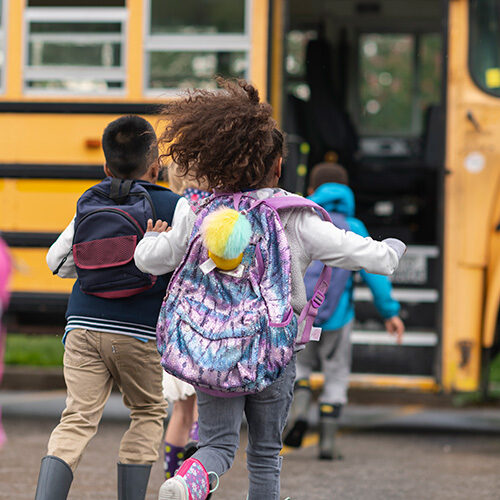
Early Childhood Application Portal
Chicago Early Learning is the central application platform for early childhood programs citywide.

Applying for CPS’s Elementary and High Schools
In Chicago, the elementary and high school application process opens in the fall, typically around October 1st. GoCPS provides a “one-stop-shop” for families to explore and apply to nearly every CPS elementary, middle, and high school as well as sign up for events.

Finding the Best Fit for Your Family
High-quality schools are environments where students feel safe and where they receive the academic, social, and emotional building blocks for success in college, careers, and life. What to look for in a school…
1. Pacing and Structure
What and how your child learns is important. Every child learns differently and at different rates. Be sure to think about the way that material is being presented as well as the pace of the curriculum.
Ask to see a curriculum plan to ensure that topics you want to be covered are included.
What grade level is my student working at? Make sure that the school work is challenging enough to keep your child engaged but not so difficult that it frustrates them.
How much and what kind of homework do I want my child to have?
Does my child learn best by seeing, listening, or while moving? Ask the school to help you understand if their structure will be a good match for your child’s learning style.
How will the school keep my child motivated and on track in class?
Does my child have any learning challenges? If so, what resources does the school have to help them reach their full potential?
2. A Safe and Nurturing Environment
In order for students to learn, they must feel safe and supported at their school. Much more than physical safety, CPS’s 5 Essentials survey provides insight into the safety of a school’s learning environment from a student’s point of view.
Do students feel supported?
Ask other parents if the school is responsive to questions and concerns.
Are there ways to communicate with the teachers? Are they responsive to concerns?
Is the school environment physically safe? Are precautions taken to keep teachers and kids safe from violence?
3. Social-Emotional Learning
As they progress through life, kids need to develop the skills to overcome challenges. The way that students are coached to respond to challenges inside and outside of the classroom is important to their long-term personal and academic success.
If my student is experiencing a social or emotional issue outside of the school, is the school equipped to assist them with counseling services or other guidance?
How are parents made aware of social and emotional support resources?
How does the school support students in managing conflict with other kids?
If my child has difficulty making friends, how will the school respond?
What is the school’s discipline policy?
What is the school’s suspension rate?
How tolerant is the school?
If my child has an IEP, does the school have the resources to support their needs?
4. Extracurricular and Academic Support Programming
Students in schools that offer a variety of learning opportunities during and after school are more engaged and better prepared for life after graduation.
What extracurricular activities are available?
What elective subjects are offered?
What other programs will my student have access to?
What programs do you have to prepare my student to pursue a career or attend a college?
Do you have support services like tutoring or mentoring that will help my student make academic progress outside of the classroom?

Kids First Chicago is helping meet us wherever we are. They’re here, there’s a system to support us, to help us to reach all those goals we have for our children, to advocate for our children.
—Andrea Zayas, Parent Advisory Board Executive Committee
What will fit your family’s needs?
There are many types of schools and any one of them could be a great option for you and your student. There are many practical considerations that parents must balance when choosing a school that is a good fit for your child and family.
Location and Transportation
The ability to get your child to and from school is a paramount concern for many parents.
School Structure and Policy
Not all schools operate in the same way or have the same student and family policies. You or your student may require a specific start and end time, before or after school care, or want a guarantee that siblings can attend the same school.
Social Considerations
While what a child learns is the main focus of finding a school, your child and family’s social needs also matter.
Language
Whether a language other than English is spoken in your home, or you would prefer for your child to learn another language, there are options for you.
Special Education and Diverse Learning Needs
The Office of Diverse Learner Supports and Services aims to ensure that students with disabilities have the supports they need to attend school. In some cases, a family and school may determine that a more specialized environment is a better fit for their student. Specialized school options offer individualized programs and services meant to meet the needs of a child and their family.
Family Fit Checklist
You can use these questions to explore whether a school might be a good fit for you and your family.

See the School
Online research can help you get started on your school search, but nothing can take the place of an in-person visit. During the school search process, be sure to take the time to visit the school, meet the administrators, talk to other parents, and ask students how they like their school. Come with specific questions about the school’s teaching methods, enrichment programs, and disciplinary code. When speaking with other parents, be sure to include those who have recent experience with the school, and try to speak with as many as possible.
